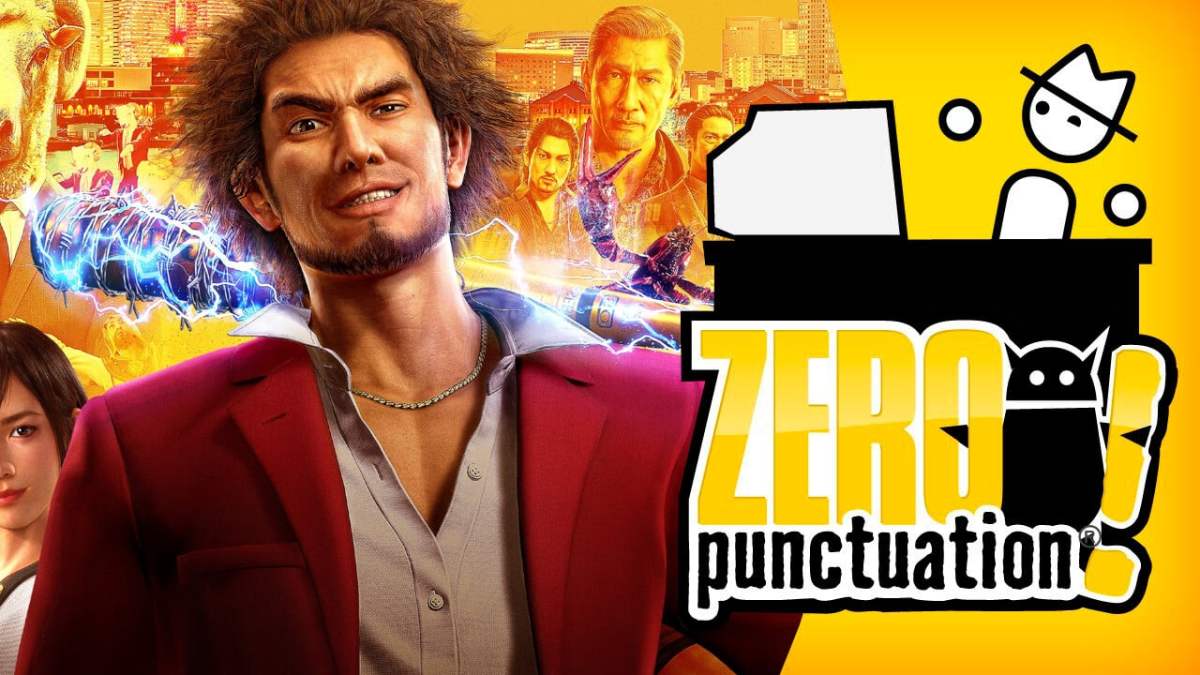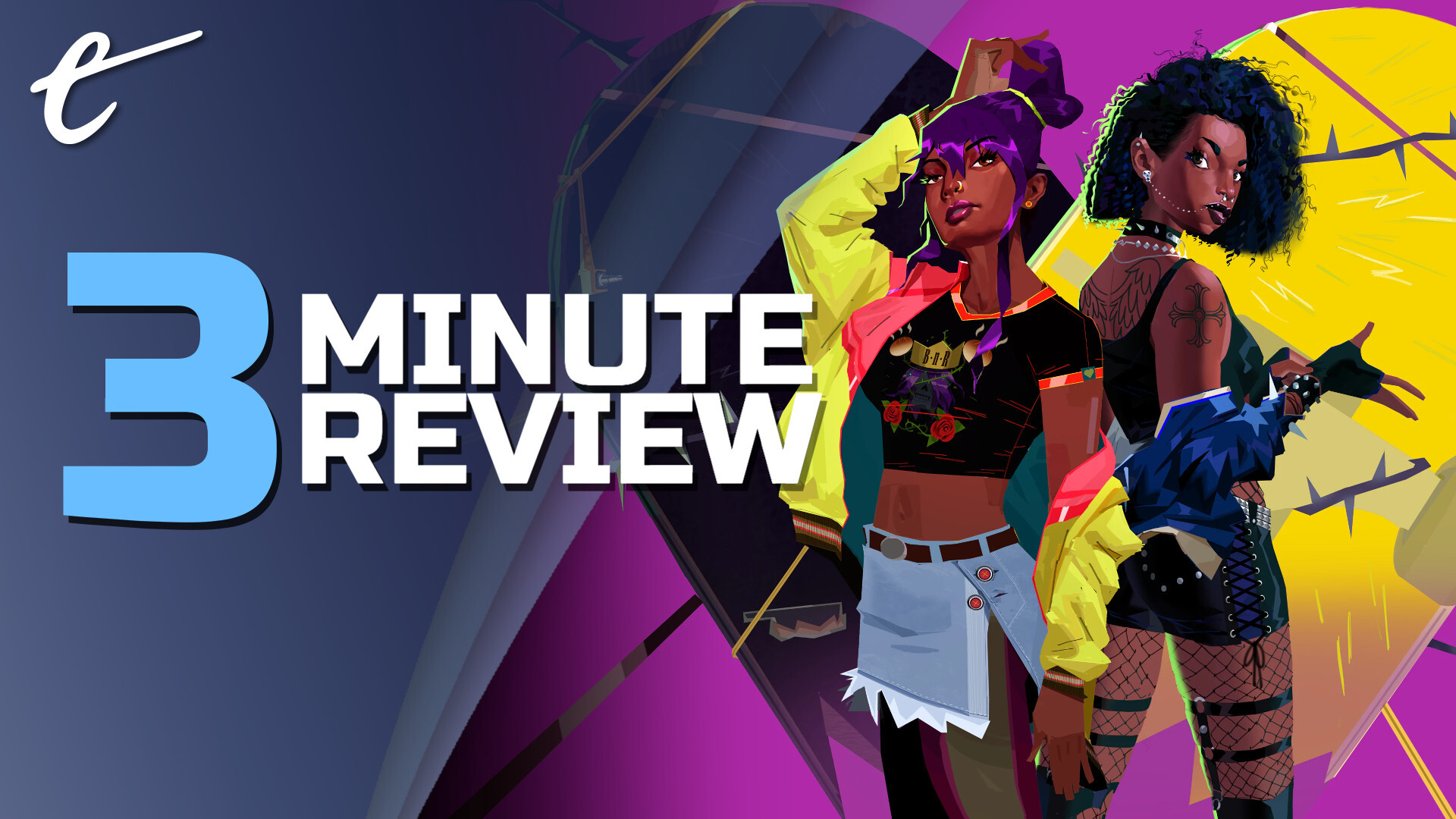This week on Zero Punctuation, Yahtzee reviews Yakuza: Like a Dragon.
Want to watch Zero Punctuation ad-free? Sign-up for The Escapist + today and support your favorite content creators!
We have a new merch store as well! Visit the store for brand new ZP merch.
Transcript
Yakuza Like A Dragon probably shouldn’t be read as a complete sentence. Don’t Yakuza like a dragon. Dragons aren’t very good at Yakuza. They intimidate easily enough but their terrifying claws are bad at holding the protection money. No, this is actually the second game of an emerging trend where the Western and Japanese titles for a Japanese franchise are combined into title. See also Resident Evil 7: Biohazard. Possibly as part of a cunning ploy to claim dual citizenship after western society collapses. Anyway, Like A Dragon is part of the potentially ill-advised continuation of the Yakuza franchise after the stepping down of its lead character, Kazuma Kiryu, the man with a face like a granite paving slab and about the same durability. As was Judgement, but where Judgement failed because the main character was a size ten twat in size nine jeans, Like A Dragon succeeds by making the main character a somehow even bigger twat. But in a loveable way, importantly. Not in a “gels his hair into spikes and dates high schoolers” way. Our subject is Ichiban Kasuga, a Yakuza enforcer who was recruited on opposite day and spends most of their time handing out free money to people and beating the snot out of other professional criminals for committing crimes.
But fate turns on Ichiban when he has to take the rap for a shooting to preserve his mentor stroke father figure’s honour and returns to Kamurocho after a long prison sentence to get to the bottom of his betrayal. Now wait just a minute, Yahtzee Moustache Contaminating Croshaw – wasn’t Kazuma Kiryu in the first game also an opposite day Yakuza who also took the wrap for a shooting to preserve someone’s honour and also returned after a long prison sentence to etc? Yes, and believe me, I had no small amount of concern for Yakuza Like A Rolling Stone before I started. The story seemed to be treading enough old ground to irritate all the world’s archaeologists and then there was the reveal that it was going to have turn-based combat. And if there’s any franchise where the combat has never needed any drastic fixes, it’s Yakuza, the games that routinely cut from grown men making understated threats to each other with very serious faces to those same grown men twatting the absolute three bean salad out of each other with benches, traffic cones and passing old ladies. But then I played the game, and my doubts were put to rest. I mean, the main story is definitely treading old ground, but then most Yakuza main stories do.
Mysterious betrayal, hero comes to the aid of victimised innocent, discovers sinister scheme to take over Japan orchestrated by evil men in suits, strong themes of fatherhood and brotherhood and then everyone takes their shirts off and twats each other with benches. That’s every Yakuza game. But the main plot is rarely the interesting part, and that aspect of Yakuza: Like A G6 takes a back seat just a short eight or nine hours into the game when the prologue finally ends and Ichiban finds himself cast out of Kamurocho and homeless on the streets of Yokohama. From there the established plot is forgotten for a huge chunk of the runtime and we become a sort of rags-to-riches story as Ichiban gathers a party of fellow deadbeats to do odd jobs that somehow all end up connecting to one of the local crime gangs. They can’t fucking sell girl scout cookies door to door without it turning out that a rival troop are in deep with Columbian drug cartels. And while Itchybum is an ass-kicking Yakuza who wears disco suits, he’s got a character of his own distinct from Kazuma Kiryu, mainly because he doesn’t emote like a print of American Gothic glued to a cast iron fridge.
He’s excitable, he’s optimistic, he’s a goofball, he’s likeable enough to pull you along on his journey, and the turn based combat works because it’s tied to his characterisation as a fantasist imagining himself as a Dragon’s Quest hero. Oh. Like A Dragon. I just got that. Combat also has enough of that Persona 5 energy about it to keep the pace up. It also reminds me of Earthbound for some reason, possibly from the way I can dress my homeless friend like a chef and tell him to twat people with a frying pan. But while stylish, the combat feels a bit mechanically lacking. Strategy only really comes into play when using abilities that hit multiple grouped together enemies, and every participant of the fight is constantly shifting randomly around like crabs busting for a piss, so after you select a dude to be the centre of your breakdancer’s windmill attack, by the time your dude runs up to that dude chances are good all the other dudes around him will have fucked off to do a little window shopping. And I’d say the combat is definitely wearing out its welcome when you’re still being constantly pulled into random fights on the streets of Yokohama with low-level dudes, long past the point that they can be dispatched in one punch or half an expertly timed fart.
On the whole, though, it does its job of pasting all the bits together. It’s not quite engaging enough to make me want to do the dungeon crawling side activity, but I was never one of the kids who liked eating paste. In the usual way of Yakuza games, it’s the side stuff that’s the real tea and biscuits. I mean, just to repeat myself, fuck the critical path. The critical path is the place where we occasionally have to stand in a room for ten minutes while an old man in a suit verbally explains the plot. Let’s just assume it ends with someone taking their shirt off and getting punched on a roof and get back to sniffing out those minigames and side activities. Don’t worry, once the nine hour prologue is over it only takes roughly seven or eight more decades to unlock them all. It’s a strong showing across the board. There are a couple of driving minigames in case Ichiban gets bored of Dragon Quest and wants to plug in Mario Kart for a bit. There’s a creative little minigame centred around Ichiban struggling to stay awake while watching a movie that made me laugh and which this time of year a lot of you young people might call “mood af.”
But the most elaborate side activity is the business management sim. At one point Ichiban becomes the president of a corporation because someone looks at our unemployed homeless ex-Yakuza protagonist and says “This person seems trustworthy and good with money,” and must manage the funding and staff placement of several businesses day to day. I found it weirdly absorbing. It’s dynamic, it’s goal-oriented, it’s got a little 8-bit sprite of Ichiban running along symbolically collecting money. I did fail the shareholder’s meeting minigame at first because the mechanics are very poorly explained, but I’m mainly bringing that up just because I love the phrase “shareholder’s meeting minigame.” For me, Yakuza: Like Like Y’know is a thumbs up. I thought the series was pretty thoroughly wrung out but with a likeable protagonist and a bit more of a lean into the usual wackiness it has successfully charmed the nurses into keeping the life support machine plugged in. Every Yakuza game is basically a loose box of disconnected toys, but for the record, this is a particularly nice box with some choice toys. Like, legos and Masters of the Universe, none of your Tickle Me Elmo dogshit.






Published: Dec 9, 2020 12:00 pm